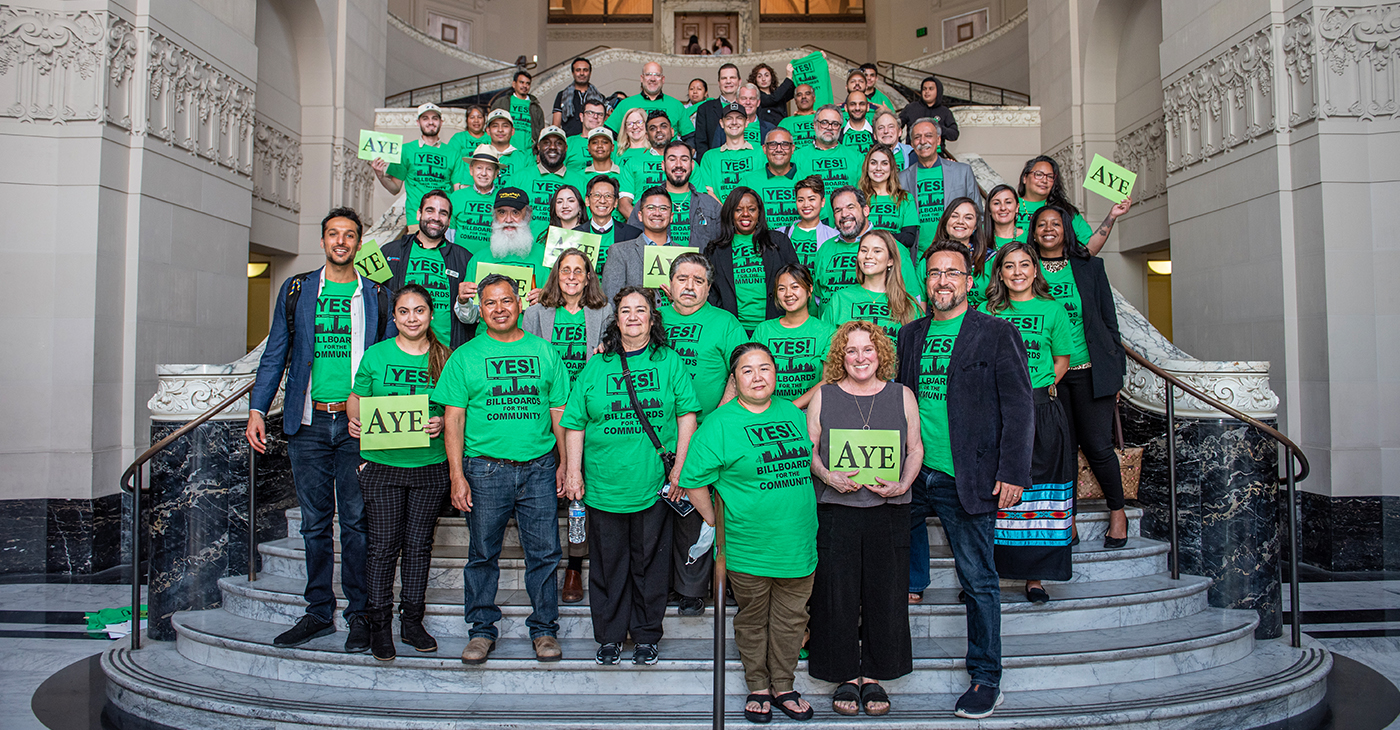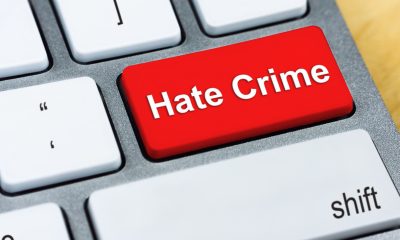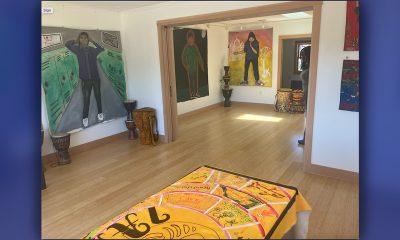Activism
Oakland’s COVID Data Show Racial Disparities in 2021 Deaths
Of the 314 total Oakland residents the coroner’s bureau recorded as dying of COVID-19 in 2021, they listed 106 of them, or about 33.8%, as Black. This is a disproportionately high rate of deaths when compared to data from the 2020 census, which counted Black people as representing 23.8% of Oakland’s population.

By Zack Haber
Data from a recent records request show that the Alameda County Coroner’s Bureau attributed 314 deaths in Oakland to the COVID-19 virus in 2021.
Some studies and reporting have suggested that available information on total COVID-19 deaths, especially when it relies on coroners, tend to be undercounts. Still, unlike data listed by the Alameda County Public Health Department, the coroner’s bureau recorded the race, gender, and age of Oaklanders who died of the virus, as well as the dates on which these deaths occurred.
The coroner’s data show Black people of all ages, along with Latinx people under 65, died at a rate disproportionately high when compared to their percentage of the population.
Of the 314 total Oakland residents the coroner’s bureau recorded as dying of COVID-19 in 2021, they listed 106 of them, or about 33.8%, as Black. This is a disproportionately high rate of deaths when compared to data from the 2020 census, which counted Black people as representing 23.8% of Oakland’s population.
Using the same two data sets, Latinx people accounted for 88, or about 28% of these deaths, while representing 27% of the population. White people accounted for 57, or about 18.2% of these deaths, while white people not also listed as Latinx represented about 28.3% of the population.
Asian people made up 42, or about 13.3% of these deaths while representing 15.5% of the population. One Native American, along with three Pacific Islanders were listed as having died of COVID-19. Two people were listed as mixed race, while about 6.5% of the deaths had no race listed.
Like elsewhere in the country and around the world, older people died of COVID-19 in Oakland at a higher rate than younger people in 2021. Oakland residents younger than 40 made up eight, or about 2.5% of the total deaths recorded. Residents older than 90 made up 36, or about 11.5% of the total deaths. People 65 and older made up 213, or about 67.8% of the total deaths.
People under 65 represented a total of 101, or about 32.2%, of COVID deaths last year in Oakland. Latinx people accounted for about 45 of these deaths, a figure that is disproportionately high compared to their share of the population. Black people accounted for about 31 of these deaths, which is also disproportionately high. White people accounted for about eight of these deaths. Asian people accounted for about five of these deaths.
By the middle of April, everyone in California who was 16 and older was eligible to book an appointment to receive COVID-19 vaccines.
After this point, COVID deaths in Oakland declined dramatically. From May through December 2021, the coroner recorded 125 COVID deaths in Oakland. In comparison, January and February alone saw 157 deaths.
While deaths of all races declined, the proportion of COVID deaths of Black people compared to the rest of the population rose. Black people made up 57, or about 45.2% of the COVID deaths in 2021 from May through December. Latinx people made up 24, or 19.2% of these deaths. White people made up 20, or 16% of these deaths. Asian people made up 12, or 9.6% of these deaths.
Activism
Oakland Post: Week of July 24 – 30, 2024
The printed Weekly Edition of the Oakland Post: Week of July 24 – 30, 2024

To enlarge your view of this issue, use the slider, magnifying glass icon or full page icon in the lower right corner of the browser window. ![]()
Activism
Oakland Post: Week of July 17 -23, 2024
The printed Weekly Edition of the Oakland Post: Week of July 17 -23, 2024

To enlarge your view of this issue, use the slider, magnifying glass icon or full page icon in the lower right corner of the browser window. ![]()
Activism
Community Celebrates Historic Oakland Billboard Agreements
We, the Oakland Billboard Economic Development Coalition, which includes Oakland’s six leading community health clinics, all ethnic chambers of commerce, and top community-based economic development organizations – celebrate the historic billboard agreements approved last year by the Oakland City Council. We have fought for this opportunity against the billboard monopoly, against Clear Channel, for five years. The agreements approved by Council set the bar for community benefits – nearly $70 Million over their lifetime, more than 23 times the total paid by all previous Clear Channel relocation agreements in Oakland combined.

Grand Jury Report Incorrect – Council & Community Benefit
We, the Oakland Billboard Economic Development Coalition, which includes Oakland’s six leading community health clinics, all ethnic chambers of commerce, and top community-based economic development organizations – celebrate the historic billboard agreements approved last year by the Oakland City Council. We have fought for this opportunity against the billboard monopoly, against Clear Channel, for five years. The agreements approved by Council set the bar for community benefits – nearly $70 Million over their lifetime, more than 23 times the total paid by all previous Clear Channel relocation agreements in Oakland combined.
Unfortunately, a recent flawed Grand Jury report got it wrong, so we feel compelled to correct the record:
- Regarding the claim that the decision was made hastily, the report itself belies that claim. The process was five years in the making, with two and a half years from the first City Council hearing to the final vote. Along the way, as the report describes, there were multiple Planning Commission hearings, public stakeholder outreach meetings, a Council Committee meeting, and then a vote by the full Council. Not only was this not hasty, it had far more scrutiny than any of the previous relocation agreements approved by the City with Clear Channel, all of which provide 1/23 of the benefits of the Becker/OFI agreements approved by the Council.
- More importantly, the agreements will actually bring millions to the City and community, nearly $70M to be exact, 23 times the previous Clear Channel relocation agreements combined. They certainly will not cost the city money, especially since nothing would have been on the table at all if our Coalition had not been fighting for it. Right before the decisive City Council Committee hearing, in the final weeks before the full Council vote, there was a hastily submitted last-minute “proposal” by Clear Channel that was debunked as based on non-legal and non-economically viable sites, and relying entirely on the endorsement of a consultant that boasts Clear Channel as their biggest client and whose decisions map to Clear Channel’s monopolistic interests all over the country. Some City staff believed these unrealistic numbers based on false premises, and, since they only interviewed City staff, the Grand Jury report reiterated this misinformation, but it was just part of Clear Channel’s tried and true monopolistic practices of seeking to derail agreements that actually set the new standard for billboard community benefits. Furthermore, our proposals are not mutually exclusive – if Clear Channel’s proposal was real, why had they not brought it forward previously? Why have they not brought it forward since? Because it was not a real proposal – it was nothing but smoke and mirrors, as the Clear Channel’s former Vice President stated publicly at Council.
Speaking on behalf of the community health clinics that are the primary beneficiaries of the billboard funding, La Clinica de la Raza CEO Jane Garcia, states: “In this case, the City Council did the right thing – listening to the community that fought for five years to create this opportunity that is offering the City and community more than twenty times what previous billboard relocation agreements have offered.”
Oakland Billboard Economic Development Coalition
| Native American Health Center | La Clínica de la Raza | West Oakland Health Center |
| Asian Health Services | Oakland LGBTQ Center | Roots Community Health Center |
| The Unity Council | Black Cultural Zone | Visit Oakland |
| Oakland African American Chamber of Commerce | Oakland Chinatown Chamber of Commerce | Oakland Vietnamese Chamber of Commerce |
| Oakland Latino Chamber of Commerce | Building Trades of Alameda County | (partial list) |
-

 Arts and Culture3 weeks ago
Arts and Culture3 weeks agoRooted in Tradition: The Intricate History of Black Hair Braiding
-

 Bay Area4 weeks ago
Bay Area4 weeks ago“I Will Not Be Bullied,” Says Oakland Mayor Sheng Thao
-

 Bay Area2 weeks ago
Bay Area2 weeks agoPG&E Increases Rates While Bay Area Households Are Struggling to Stay Afloat
-

 Business3 weeks ago
Business3 weeks agoGov Newsom: Raising Fast Food Minimum Wage to $20 Pays Off as Jobs Multiply in Industry
-

 Activism4 weeks ago
Activism4 weeks agoOpponents of Mayor Sheng Thao Are Calling on Her to Resign Following FBI Raid
-

 Community1 week ago
Community1 week agoHundreds Come to Jehovah’s Witnesses’ Assembly Hall for Three-Day Program of ‘Good News’ in Fremont
-

 Bay Area2 weeks ago
Bay Area2 weeks agoJuneteenth Mass Shooting Suspect Charge with Multiple Counts of Felony Assault by Alameda County DA Pamela Price
-

 Activism4 weeks ago
Activism4 weeks agoOakland Coliseum Sale to AASEG: A Model for Community Development and Inclusion





















































